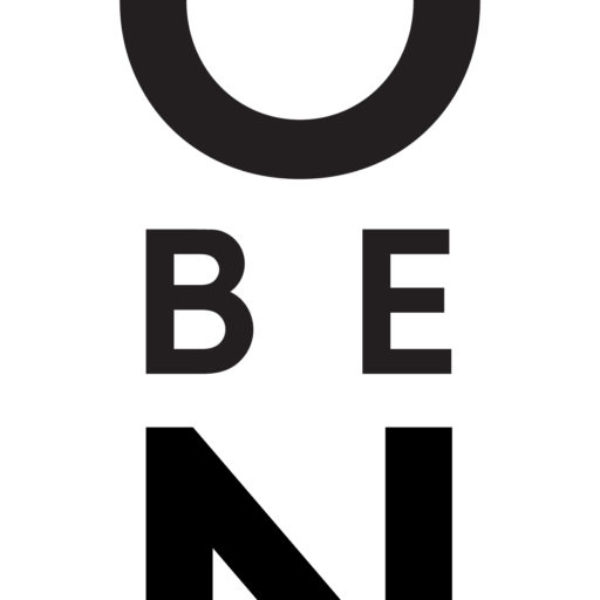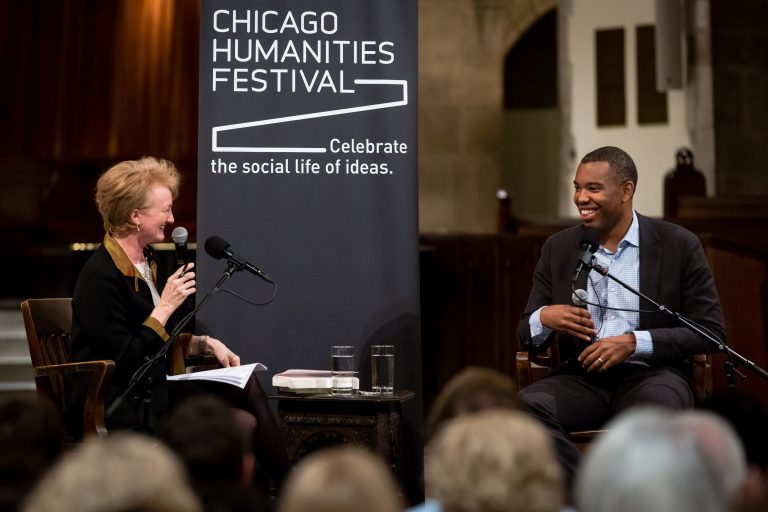Race and Healing: A Body Practice
Therapist and trauma specialist Resmaa Menakem is working with old wisdom and very new science about our bodies and nervous systems, and all we condense into the word “race.” “Your body — all of our bodies — are where changing the status quo must begin.”
Find a quiet place and experience this short, simple body practice offered in Resmaa’s conversation with Krista on the On Being episode, ‘Notice the Rage; Notice the Silence.’
Resmaa Menakem: So in terms of a practice, this is just a very simple practice. If you’re listening to me right now, one of the things I want you to do is, I want you to just sit for a second. And I want you just to stare straight ahead. Just look straight ahead. And as you’re looking straight ahead, just notice what is actually landed and what is actually still in the air. All you’re doing is noticing what’s happening: noticing how much you dislike my voice; noticing how much you dislike, or you like, some of the things that Krista said. Just notice those pieces. Now what I want you to do is — look over your left shoulder, and use your neck and your hips; so turn and look over your shoulder. And then come back to center; and now look up; and look down; come back to center; and now look over your right shoulder, using your neck and your hips. And the reason why you use your neck and your hips is that I want you to engage that psoas and engage some parts of the vagal. And then, now come forward. And now just be quiet and notice what’s different.
What’d you notice?
Krista Tippett, host: Well, I was kind of aware that I was half-thinking about what was gonna come next, but, I don’t know, I felt more settled. And there was also a feeling of — there was kind of a feeling of comfort.
Menakem: So one of the things about the animal part of the body is that even though me and you are in this room — this nice place— there’s a part of the body that’s saying, “Yeah, but what else is gonna happen?” And the reason why — especially when I’m working with bodies of culture, one of the first things I have them do is orient; orient to the room, not orient in the mystical way but actually literally. Because many times the bodies of culture are waiting for danger. Even though you know nothing’s behind you, letting the body know it actually helps some pieces. Now, if you get reps in with that, not just do it one time or just when I tell you to, what you may notice is that you have a little bit more room for other — literally, for other things to happen that can’t happen when the constriction is like that.
Tippett: That makes sense, too, in terms of how trauma is in the eternal present; you’re not remembering it, it’s reliving itself. And you’re getting — just for that minute, you’re actually settling in the real present.
Menakem: That’s right; and then the body goes, oh, you mean that’s there, too? And then your body starts to do this thing, where you go, “Well, I don’t want to do that no more.” And then, if you can get another — there’s a thing called the reticular activation system, the RAS, that it’s the thing where, when you go buy a car, and you say, “Man, this is a beautiful car. Ain’t nobody else got a car like this, that’s this color,” and then you drive off the lot, you go down five blocks, and you’re like, “Damn, that’s the same — damn, that’s the — everybody got this car.” It was always there, but now, because your brain has said “This is important,” it makes it —
Tippett: You see it everywhere.
Menakem: You see it everywhere. That’s why the reps are so important, because when you get the reps in, if you get the reps in around race —
Tippett: You can do this everywhere.
Menakem: That’s right. That’s why the reps around race are so important, is that, because as you get more reps in about it, all of a sudden, other things start to become important that weren’t important, because now your brain is saying, “Oh, I need to read that. Oh, I need to pay attention to that. Oh, I need to track her body. Oh, I need to understand that. Oh, I need to ask questions about …” Right? And now those things become attracted to you, which creates more angst, which forces you to transform.
Resmaa’s book, My Grandmother’s Hands: Racialized Trauma and the Pathway to Mending Our Hearts and Bodies, includes many more practices designed for black bodies, for white bodies, and even for blue (police) bodies. He also offers a free online course on healing racialized trauma on his website.


Share your reflection